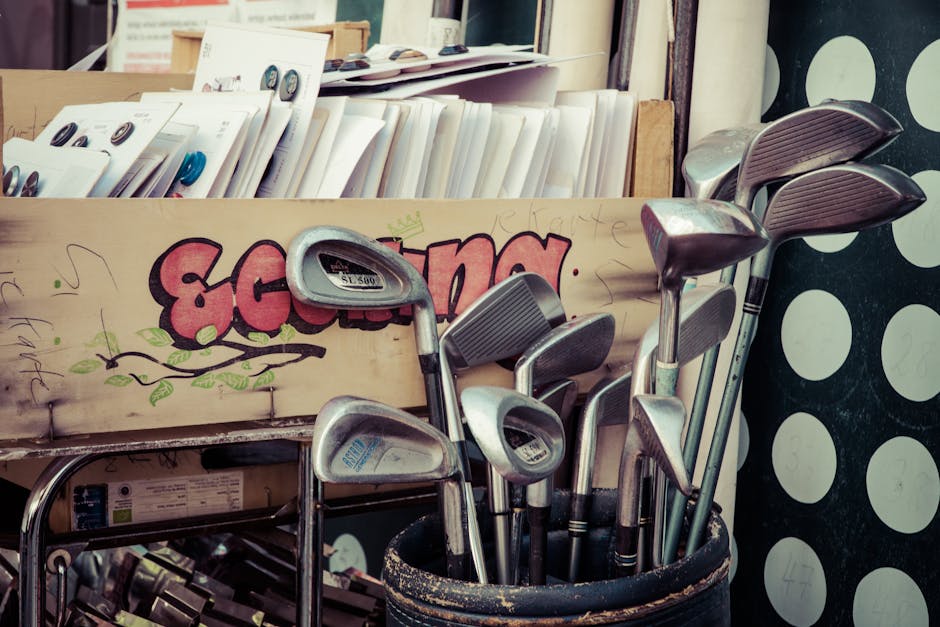Golf clubs are essential tools for any golfer, regardless of skill level. They come in a variety of types, each designed for a specific purpose. Understanding the different types of golf clubs can help you improve your game and make the most of your time on the course.
**Types of Golf Clubs:**
* **Drivers:** Drivers are the longest clubs in the bag, used for tee shots and long approach shots. They have large clubheads and long shafts, designed to generate maximum distance.
* **Fairway Woods:** Fairway woods are shorter than drivers and have smaller clubheads. They are used for shots from the fairway and rough, where you need more accuracy and control than with a driver.
* **Hybrids:** Hybrids are a combination of fairway woods and irons, offering a blend of distance and accuracy. They are a versatile option for players who want to fill gaps in their set or improve their performance from certain distances.
* **Irons:** Irons are designed for a wide range of shots, from long approach shots to shorter chip shots. They have numbered clubheads (e.g., 3-iron, 7-iron) that indicate the loft angle, with higher numbers representing less loft and more distance.
* **Wedges:** Wedges are specialized clubs used for short, high-trajectory shots around the green. They have high loft angles and a variety of sole designs to help players navigate different types of lies.
* **Putters:** Putters are used for the final stroke on the green, to roll the ball into the hole. They have small clubheads and a flat lie angle, designed for precise touch and control.
**Choosing the Right Clubs:**
Choosing the right golf clubs can significantly improve your performance. Consider the following factors:
* **Skill Level:** Beginner golfers may benefit from clubs that are more forgiving, while experienced golfers can opt for clubs that offer more control and precision.
* **Swing Speed:** Players with higher swing speeds can generate more distance with less loft, while players with slower swing speeds may need clubs with more loft to maximize distance.
* **Course Conditions:** The type of course you play will influence your club selection. Firm fairways may allow for lower-lofted clubs, while soft or wet conditions may require higher-lofted clubs to get the ball airborne.
* **Personal Preferences:** Ultimately, the best golf clubs for you are the ones that feel comfortable in your hands and produce the desired results. Experiment with different clubs to find the ones that suit your game.
**Maintenance and Care:**
Proper maintenance is crucial to ensure the longevity and performance of your golf clubs. Clean the clubheads and shafts regularly to remove dirt and debris. Check the grips for wear and tear, and replace them as needed. Store your clubs in a cool, dry place to prevent rust and damage.
**Conclusion:**
Golf clubs are an essential part of the game, and understanding their different types and uses can help you make informed choices and improve your performance. By selecting the right clubs and taking proper care of them, you can enhance your enjoyment and success on the golf course.

